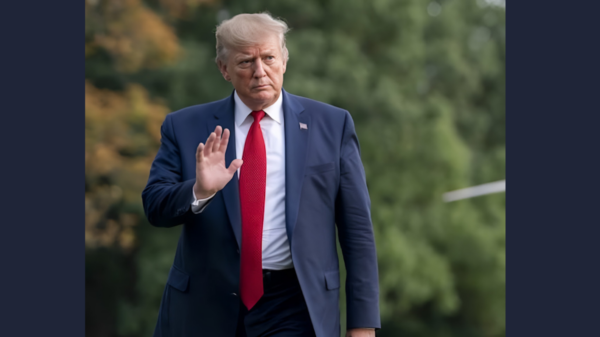By Clarence Page
Some of the fiercest attacks against Donald Trump’s handling of classified documents came from Trump himself, especially in barbs aimed at Hillary Clinton.
That’s why in the indictment, Justice Department special counsel Jack Smith cited some of Trump’s own speeches from his 2016 election campaign to show in easy-to-grasp form how seriously — or unseriously — the former president took the task of keeping the nation’s official secrets secret.
“As a candidate for president of the United States,” the indictment recounts, “Trump made the following public statements, among others, about classified information:
“On August 18, 2016, Trump stated, ‘In my administration I’m going to enforce all laws concerning the protection of classified information. No one will be above the law.’
“On September 6, 2016, Trump stated, ‘We also need to fight this battle by collecting intelligence and then protecting, protecting our classified secrets. … We can’t have someone in the Oval Office who doesn’t understand the meaning of the word confidential or classified.
“On November 3, 2016, Trump stated, “Service members here in North Carolina have risked their lives to acquire classified intelligence to protect our country.”
The case has sparked predictable controversy on all sides, as Trump usually does. But this new scandal has opened up rounds of speculation over a simple question: Why did Trump do what he is alleged to have done?
Why did he hold onto thousands of presidential records — including more than 300 classified documents at his Mar-a-Lago residence in Palm Beach, Florida, and fight so hard to keep them?
When asked, his responses boil down to the equivalent of a one-word answer from a petulant child: Mine!
Yet, compared with Trump’s earlier scandals, he has not left his apologists much material to work with in their attempts to excuse or distract us from the remarkably compelling allegations against him.
As a result, the immediate response to news of Trump’s indictment generated waves of sound bites from Republicans that begin with the question, “What about …?”
In this case, we immediately heard “What about Hillary Clinton’s home-brewed email server or the classified documents that turned up in President Joe Biden’s house — and former Vice President Mike Pence’s house, for that matter?”
All three were in possession of classified documents, but from there the stories followed paths that were quite different. Back when the investigation into Trump became public, Biden’s team and Pence’s camp proactively searched their records, found a few documents with markings and turned them over to the government. Last week officials announced Pence would not be charged.
In Biden’s case, Attorney General Merrick Garland named a special counsel and the exact status of his investigation remains unclear.
Clinton’s email controversy won’t go away, either, at least not in the right-wing info-sphere. Yet the contrast between the cooperation offered by Biden and Clinton, versus the stonewalling by Trump, speaks volumes.
Even former Attorney General Bill Barr, once famously an apologist for Trump, differentiated this investigation from other Trump probes in an appearance on Fox News last Sunday.
“This idea of presenting Trump as a victim here, a victim of a witch hunt, is ridiculous,” Barr said. “Yes, he’s been a victim in the past. Yes, his adversaries have obsessively pursued him with phony claims. I have been at his side defending against them when he is a victim. But this is much different. He is not a victim here. He was totally wrong that he had the right to have those documents. Those documents are among the most sensitive secrets the country has.”
Indeed. As much as Trump might think he can pick and choose what he wants to claim as his own, the rest of us still have something to say about that.

You must be logged in to post a comment Login